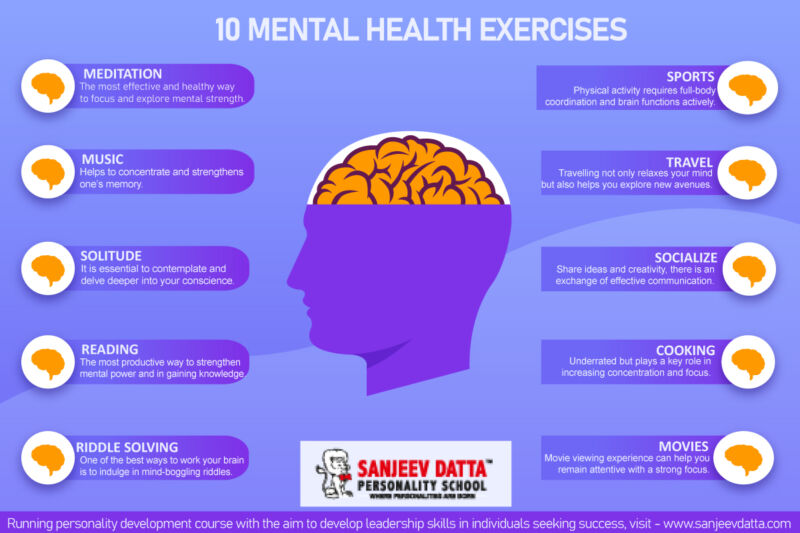Parenthood is a journey filled with joy, challenges, and responsibilities. As parents, we often focus on the physical well-being of our children, ensuring they are well-fed, educated, and safe. However, in this noble pursuit, we must not overlook a fundamental aspect that impacts not only us but also our children: our mental health. Just as an airplane’s oxygen mask must be worn by adults before assisting children, prioritizing mental health for parents is essential for creating a healthy and nurturing environment for our families.
- Understanding the Mental Health Landscape:

Mental health refers to our emotional, psychological, and social well-being. It affects how we think, feel, and act, influencing every facet of our lives. Parents face unique challenges that can place immense stress on their mental well-being. Balancing work, household responsibilities, and childcare can be overwhelming, leading to feelings of anxiety, depression, and burnout.
- The Ripple Effect on Children:

Parent’s mental health significantly impacts their children’s development. A parent’s emotional state can influence their interactions with their children, shaping their emotional resilience, self-esteem, and overall well-being. Children are remarkably perceptive and can pick up on their parents’ stress and emotional distress. Neglecting parental mental health can inadvertently lead to a cycle of emotional challenges that children may carry into adulthood.

- Modeling Healthy Behavior:

Parents are the primary role models for their children. By prioritizing their mental health, parents demonstrate the importance of self-care and emotional well-being. This sets a positive example for children, encouraging them to adopt similar practices as they grow. In contrast, neglecting mental health may perpetuate the idea that self-care is not a priority, potentially leading to a cycle of neglect for generations.
Visit: tips for self love
- Effective Parenting Through Emotional Resilience:

Parenting demands emotional resilience – the ability to cope with stress and bounce back from challenges. Prioritizing mental health equips parents with the tools to manage stress and adversity effectively. Emotional resilience enables parents to respond calmly to parenting obstacles, make rational decisions, and maintain healthy relationships with their children. Moreover, emotionally resilient parents are better equipped to handle the inevitable ups and downs of parenthood, fostering a stable and nurturing environment for their children. Our classes focus on personality development for kids to develop a strong and smart brains.
- Enhanced Communication and Bonding:

A strong parent-child relationship is built on open communication and emotional connection. Prioritizing mental health enables parents to communicate effectively with their children, fostering trust and understanding. When mentally healthy, parents can engage in meaningful conversations, listen actively, and provide emotional support to their children. This, in turn, strengthens the parent-child bond and creates a safe space for children to express their thoughts and feelings. Elevate your kids’ self-image and help them excel in life – enroll them in our personality grooming classes.
- Coping with Parental Guilt:

Parental guilt is a common emotion that can stem from various sources – from not spending enough time with children to making tough decisions. Prioritizing mental health helps parents manage and mitigate feelings of guilt. It enables them to acknowledge that self-care is not selfish but essential for their well-being. This perspective shift can lead to a healthier mindset, allowing parents to approach parenting with a greater sense of balance and self-assurance.
Visit: why is motivation important
- Breaking the Stigma:

Historically, there has been a stigma surrounding mental health, which has discouraged many parents from seeking help. By openly addressing their mental health needs, parents can contribute to breaking down this stigma and promote a culture of acceptance and support. When parents prioritize their mental well-being, they demonstrate that seeking help is a sign of strength, encouraging others to do the same.
Strategies for Prioritizing Mental Health for Parents:

- Self-Care Rituals: Engaging in activities that bring joy and relaxation, such as hobbies, exercise, and mindfulness practices, can help parents recharge and manage stress.
- Open Communication: Parents should communicate their feelings with their partner, friends, or a mental health professional. Expressing emotions can alleviate stress and prevent feelings of isolation.
- Time Management: Efficiently managing time between work, family, and personal pursuits is crucial. Setting boundaries and delegating tasks can alleviate unnecessary stress.
- Seeking Professional Help: Consulting a mental health professional can provide parents with valuable tools and strategies to manage their mental health effectively. Joining personality development classes in delhi can help you in working on your personal development.
- Building a Support System: Connecting with other parents, participating in support groups, or seeking guidance from experienced individuals can foster a sense of community and shared understanding.
Visit: how to do self introspection
Conclusion:
As parents, our responsibility extends beyond providing physical care to our children. Prioritizing mental health for parents is a critical step toward creating a nurturing environment supporting parents and children. By focusing on emotional well-being, parents model healthy behavior, enhance communication, and break the cycle of generational emotional challenges. As we invest in our mental health, we invest in the well-being of our families and future generations, fostering a legacy of emotional resilience, understanding, and love.
Why Sanjeev Datta Personality School?
- INTERVIEW TRAINING
- Leadership
- Presentation Training
- Social Boldness
- Dressing Etiquette
- Office Etiquette
- Communication Skills
- English Speaking
- Anger Management
- Time Management
- Team Building
- Performance Enhancer
- Soft Skills
- Goal Setting
- Career Counselling
- Student Subject Choice Counselling
- Listening Skills
- Video Presentation
- Meditation
For more details, contact us now!


